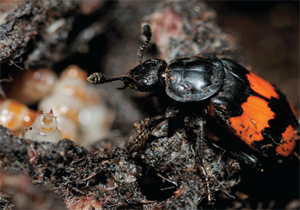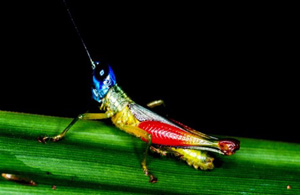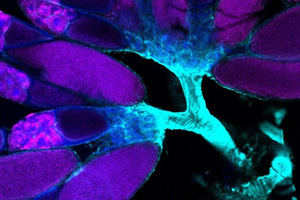Course Overview
In the third year of the Natural Sciences Tripos, students have the chance to specialise in an area of interest to them. Part II Zoology offers a great degree of flexibility and variety; students choose four modules from twenty; these modules (some of which are interdepartmental) cover a diverse range of topics, including animal behaviour, evolution, conservation science, ecology, neuroscience and cell and developmental biology. This allows students the freedom to choose modules that complement each other and their interests, and to explore interdisciplinary links.
Students undertake research projects throughout the year, giving practical experience of lab or fieldwork. Some students will initiate a project whilst on our exciting tropical field course which takes place in the summer vacation before the course starts.
 Another option is to take Biological and Biomedical Sciences (Zoology). Students choosing this option take four Zoology modules, plus a fifth module as a minor subject (this can be from another department, or one of the Zoology modules offered as a minor). Instead of undertaking a research project, students write a dissertation, taking the form of a literature review.
Another option is to take Biological and Biomedical Sciences (Zoology). Students choosing this option take four Zoology modules, plus a fifth module as a minor subject (this can be from another department, or one of the Zoology modules offered as a minor). Instead of undertaking a research project, students write a dissertation, taking the form of a literature review.

We provide all Part II students with a nurturing, supportive and stimulating environment. Part II students are welcomed as valued members of the Department, they are invited to research seminars, wellbeing events and can join members of staff in the tea room and at Happy Hours. We want students to excel in their third year at Cambridge, so we provide additional training in statistics, reading papers, essay-writing, preparing a research project or dissertation, and giving a research talk. We also prepare students for the future with a careers session and advice on applying for postgraduate study.
For students taking the MVST, we enhance their training in several ways, by showing how healthy bodies develop and function; explaining about the processes that trigger cancer; showing evolutionary principles underpin the design of a new flu vaccine, and account for constraints on immune function; revealing consistent patterns in animal form through comparative anatomy; and highlighting how rapid man-made changes in our world have substantial implications for human and animal health.

Department Contacts
Part II students are treated as full members of the Department, which is unusually large and diverse, and there is a tradition of easy and informal access to members of the teaching staff and others. The friendliness of the Department is often one of the first things a student will mention about the course.
Professor Rufus Johnstone is the current Part II Zoology and BBS Zoology Course Organiser.
Lizzie Burgess, Teaching Manager, organises many practical aspects of the course. She is available to give students advice and information on any aspect of the course, and to deal with any day-to-day problems arising. Students are free to contact her as their first port of call with questions or difficulties connected with the Zoology course. Please contact her on teaching@zoo.cam.ac.uk.
Jane Acred is the librarian and can help with any matters related to the library or online access to journals/books.

